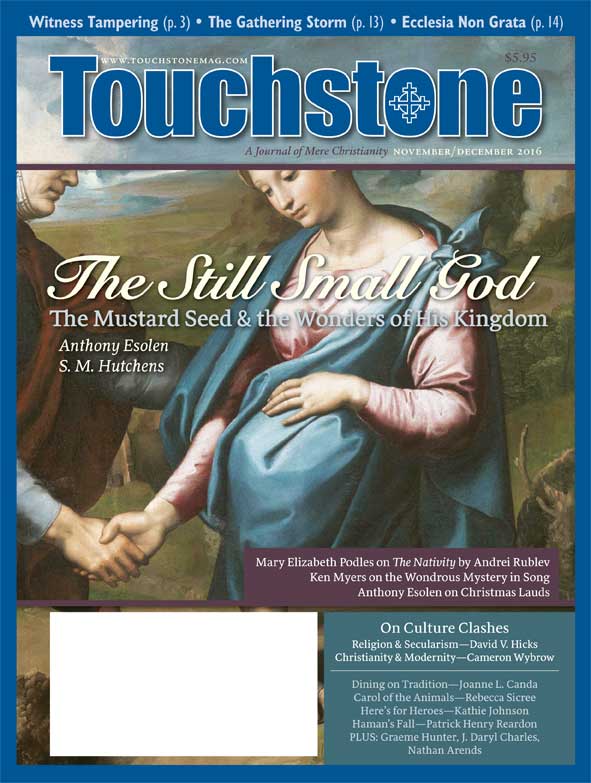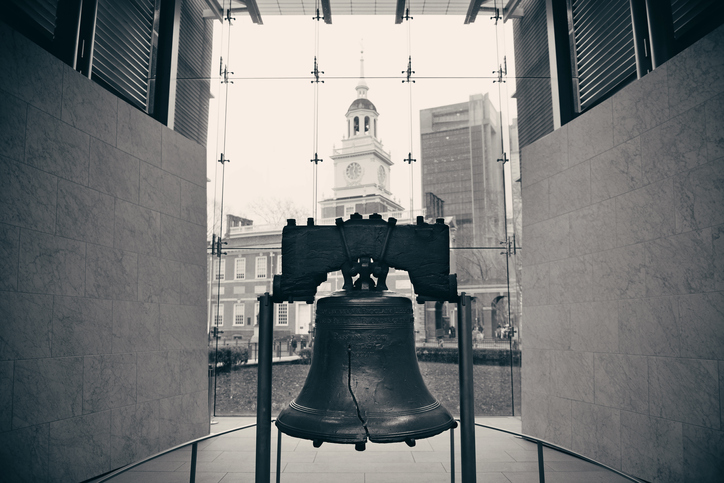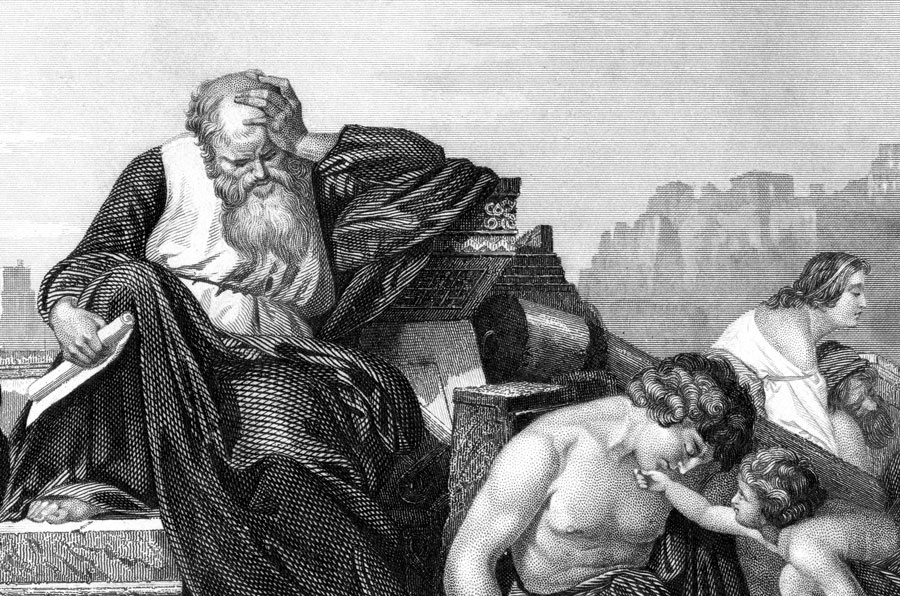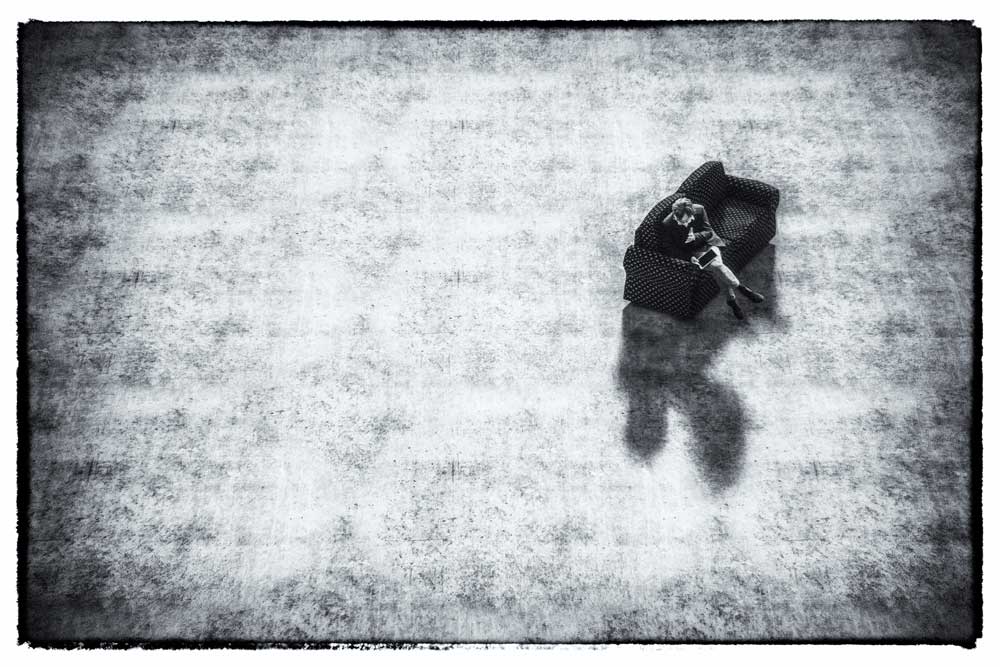View
Ecclesia Non Grata
Regis Nicoll on the Deepening Loss of Religious Freedom & Our Response
I recall, back in the 1980s, when Nissan Motor Corporation rebranded its Datsun autos to Nissan. For three years, the vehicles carried both logos, with the Nissan label gradually gaining prominence in size and placing until the Datsun label was eclipsed and eventually dropped. Something similar but more substantive has been happening with regard to religious liberty.
Less than a year into office, President Obama told a gathering honoring the victims of the Fort Hood shooting, "We're a nation that guarantees the freedom to worship as one chooses" (emphasis added). Whether he intended it or not, the president voiced a view of religious liberty exemplified in places like Saudi Arabia, where individuals unattached to the state religion are free to practice their sectarian devotions only as long as they do so out of the public eye.
By contrast, religious liberty in the United States, as promoted by its Founders and understood by its citizens and elected officials until quite recently, is the right not only to worship, but also to teach, preach, evangelize, raise children, conduct business, exercise citizenship, and work for the common good of one's neighbors and nation according to one's religious beliefs.
A Calculated Shift?
Was the president's turn of phrase careless or calculated? In a 2010 piece in First Things, Ashley Samelson of the Becket Fund noted that, since Fort Hood, the president's "freedom of worship" rhetoric was used by the administration "too many times to seem inadvertent." Moreover, there have been dozens of actions by the administration that curtail or threaten to curtail religious freedom. As documented by the Alliance Defending Freedom, they include:
• Imposing a healthcare law that requires employers, regardless of religious convictions, to provide coverage for contraceptives, sterilization procedures, and abortion-inducing drugs in their employees' insurance plans.
• Overturning conscience exemptions intended to protect healthcare workers from being forced to participate in abortions and other activities deemed immoral by their religion.
• Repealing the military's "Don't Ask, Don't Tell" policy regarding homosexual servicemen, with no conscience protections for military chaplains.
• Revoking a grant to Catholic agencies to combat sex trafficking because of the Catholic Church's stance on abortion.
• Arguing in Hosanna-Tabor v. EEOC that the government could interfere in decisions about who can serve as a minister in religious organizations and churches (the U.S. Supreme Court ruled 9–0 against the argument in 2012).
The Price of Citizenship
Following the administration's lead, state and federal courts have issued judgments against organizations, businesses, and individuals who, for religious reasons, have refused to offer adoption services to same-sex couples, expose their children to homosexualist indoctrination, hire gay counselors for their church youth groups, and provide services for same-sex weddings. Some defendants, like Oregon bakery owners Melissa and Aaron Klein, have been heavily fined, had their assets seized, and lost their businesses. In a particularly egregious ruling, a New Mexico court ruled that a wedding photographer was obliged to ignore her religious beliefs as "the price of citizenship."
Back in 1992, in Lee v. Weisman, a case involving prayer at public-school commencements, Supreme Court Justice Anthony Kennedy opined that law cannot be based on the "conviction that there is an ethic and a morality which transcend human invention." The Columbia Law School's Center for Gender and Sexuality evidently agrees: in 2014 it sponsored a colloquium of "theorists, religious leaders, and activists who are working to contest and reframe the utilization of religious exemptions to civil rights laws." A year later, a bill to undercut those exemptions was introduced in Congress by legislators who apparently share Justice Kennedy's aversion to standards "which transcend human invention."
The Inequality of "Equality"
The Equality Act of 2015 would amend the Civil Rights Act of 1964 to include "sexual orientation and gender identity" (SOGI) as protected classes, equivalent to "race." Discrimination on the basis of SOGI would be prohibited in matters of employment, public education, credit, jury service, federal funding, and public accommodations. The bill would also prohibit appealing to the Religious Freedom Restoration Act in cases involving alleged discrimination against LGBT individuals.
Thus, despite its noble label, the Equality Act is anything but. It creates inequality by giving special protections to concocted classes of individuals, while abrogating the constitutional rights to freedom of conscience, speech, and religion. These would take a back seat to the legislatively decreed "right" to acceptance and approval of any individual's sexual proclivities and expressions.
Sponsors of the Equality Act have been quick to note that the religious exemption of the 1964 Civil Rights Act would remain in place, but they neglect to point out that it would apply only to religious organizations' hiring decisions with respect to individuals of a different religion. That is, a Catholic church could pass over a Buddhist job applicant on account of his religion, but not an African-American one on account of his race. Since the Equality Act treats SOGI like race, it would also prohibit a church from passing over a job applicant on the basis of his homosexuality, transgenderism or any other SOGI category he laid claim to, even if he was openly defiant of church teaching in these matters. In other words, the so-called religious exemption would be no exemption at all.
A Time of Decision
In 2015, Solicitor General Donald Verrilli was asked if a victory for the plaintiffs in Obergefell v. Hodges could lead to revocation of the income tax exemption for religious institutions that opposed same-sex marriage. "It's certainly going to be an issue," Verrilli replied; "I don't deny that." Scarcely a year later, the California legislature passed a bill threatening the tax exemptions of dozens of religious schools on this basis, and other states are likely to follow suit.
All this suggests that we are near a tipping point for religious freedom. There may well come a day in the not-too-distant future when Caesar will no more tolerate a church's refusal to "marry" a same-sex couple or to allow openly non-celibate homosexuals as members, leaders, or staffers, than it will tolerate its refusal to hire a person of color.
And one of the first places this intolerance will be felt, as the Solicitor General noted, is in the pocketbook. In the New York Times, religion columnist Mark Oppenheimer noted—approvingly—that "the logic of gay-marriage rights could lead to a reexamination of conservative churches' tax exemptions." He thinks, in fact, that it's long past time "to abolish, or greatly diminish," the tax-exempt status of "organizations that dissent from settled public policy on matters of race or sexuality."
If (when?) that happens, it will be a time of decision for Christian churches. Concerns over congregational survival, social acceptance, and personal livelihood will tempt some—perhaps many—to "come to terms" with the LGBT agenda. The temptation will be particularly strong for career pastors and congregations heavily invested in staff, buildings, and projects.
Congregations that hold firm to the authority of Scripture and historical church teaching will no doubt face lawsuits, financial ruin, and possibly even criminalization. These things could cause them to splinter and go underground, but, ironically, that could be the best thing for Christianity since Pentecost.
In his book The Rise of Christianity, sociologist Rodney Stark documents the growth of Christianity from an underground movement of 120 members at Pentecost to six million members by the end of the third century, all due to the synergistic power of proclamation and practice. Accepting their faith as something governing all of life, the early Christians led fetchingly different lives from those of their pagan neighbors. Public acts of charity, mercy, sacrifice, and holy living were strongly attractive to people living in a culture marked by indifference to others, especially the disadvantaged. By practicing the faith they professed, Christians made the invisible kingdom visible, and this resulted in explosive growth.
Giving Us What We Want
Today, Christianity is another thing, at least in the West. After decades of silence, disengagement, and feckless disciple-making, many churches find themselves in a rearguard position against opponents that are daily growing in strength and confidence. And the reason is simple.
For years, pollsters have documented the decreasing distinction between believers and non-believers in opinion and behavior. For example, a 2011 survey by the Barna Group found that only three percent of professed Christians in America "have surrendered control of their life to God, submitted to his will for their life, and devoted themselves to loving and serving God and other people."
Think what that means: on average, a faithful pastor of a hundred-member congregation can count on two (two!) members, plus himself, to be full-fledged disciples in the biblical sense.
Christians may complain about a government that has little respect for them or their beliefs, but if they don't take their faith seriously, why should the government do so? When the citizens don't espouse Christian principles, what is Caesar to think? When they don't adhere to Christian morals, what is he to do—except to give them what they appear to want: freedom from "an ethic and a morality which transcend human invention"?
A "New Kind" of Church
If the churches are to recover their moral authority and help right the scales of religious liberty, they will have to produce a "new kind" of Christian—an ancient-future one. In contrast to the modern spiritual aesthete, who wants little more from church than a beautiful building, nice members, a nurturing pastor, uplifting sermons, pleasant music, and a sixty-minute service, the new kind of Christian will be one whose faith, professed and practiced, matches the faith that Jesus taught and lived.
Producing him will require a "new kind" of church. A church that is more of a boot camp and training center than lecture hall and coffee bistro. A church that integrates the lifelong process of discipleship into the whole fabric of church life, rather than as an elective class or program. A church that determines success by discipleship outcomes (spiritual growth and kingdom involvement) rather than marketplace measures (attendance, giving, campus facilities).
And a church that develops "double agents" for the kingdom: agents of saving grace, who not only know what they believe, and why, about the faith once given, but who also model it in their lives, confess it with their lips, and are able to articulate it winsomely to others; and agents of common grace, who, as neighbors, family members, citizens, employers, workers, artists, educators, and public servants, are "discipling" their nation by shaping its various cultural, social, and institutional artifacts through the application of kingdom principles.
In other words, a church so burdened for a world wobbling on its axis from sin that it calls upon God for a movement of the Holy Spirit, the likes of which have not been experienced for two millennia.
Regis Nicoll is a retired nuclear engineer and physicist who is a Colson Center Fellow and Christian commentator. He currently writes for BreakPoint, Crosswalk, and Salvo magazine, and serves as the lay pastor of an Anglican church plant in Chattanooga (www.hamiltonaf.org).
subscription options
Order
Print/Online Subscription

Get six issues (one year) of Touchstone PLUS full online access including pdf downloads for only $39.95. That's only $3.34 per month!
Order
Online Only
Subscription

Get a one-year full-access subscription to the Touchstone online archives for only $19.95. That's only $1.66 per month!
bulk subscriptions
Order Touchstone subscriptions in bulk and save $10 per sub! Each subscription includes 6 issues of Touchstone plus full online access to touchstonemag.com—including archives, videos, and pdf downloads of recent issues for only $29.95 each! Great for churches or study groups.
Transactions will be processed on a secure server.
more on Religious Liberty from the online archives
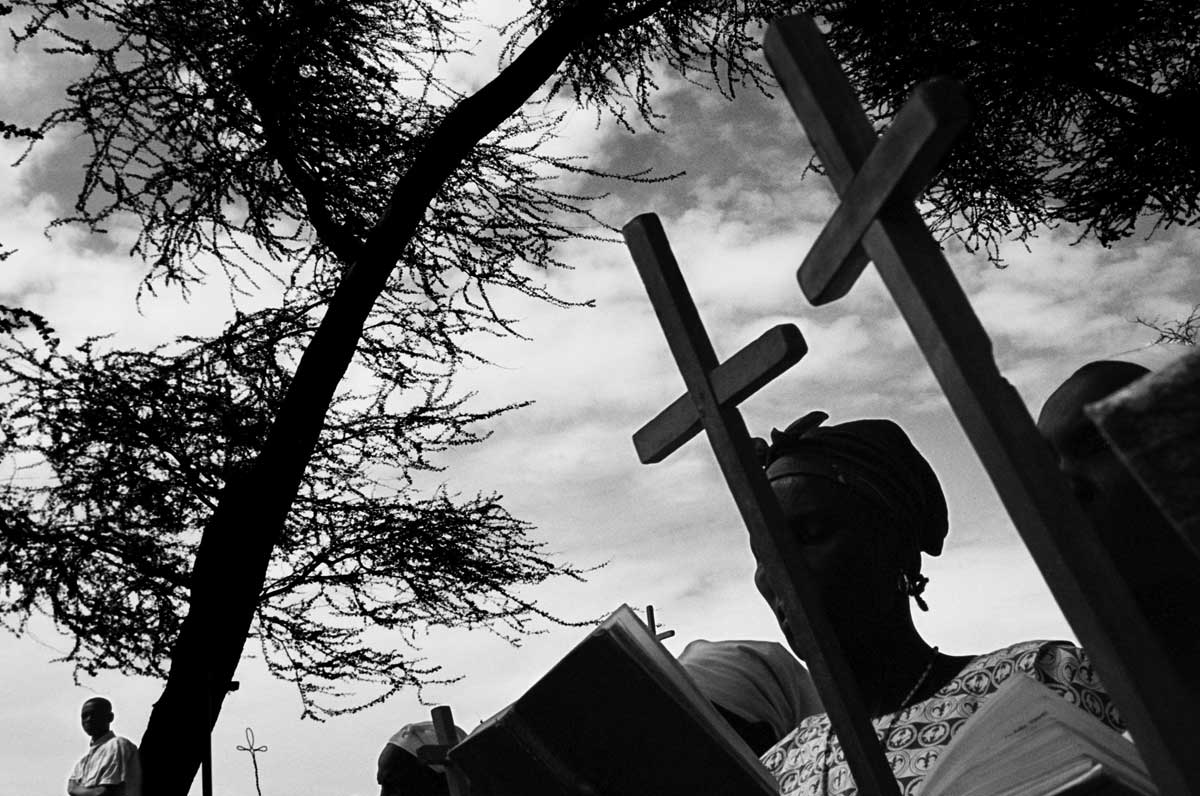
27.3—May/June 2014
Religious Freedom & Why It Matters
Working in the Spirit of John Leland by Robert P. George
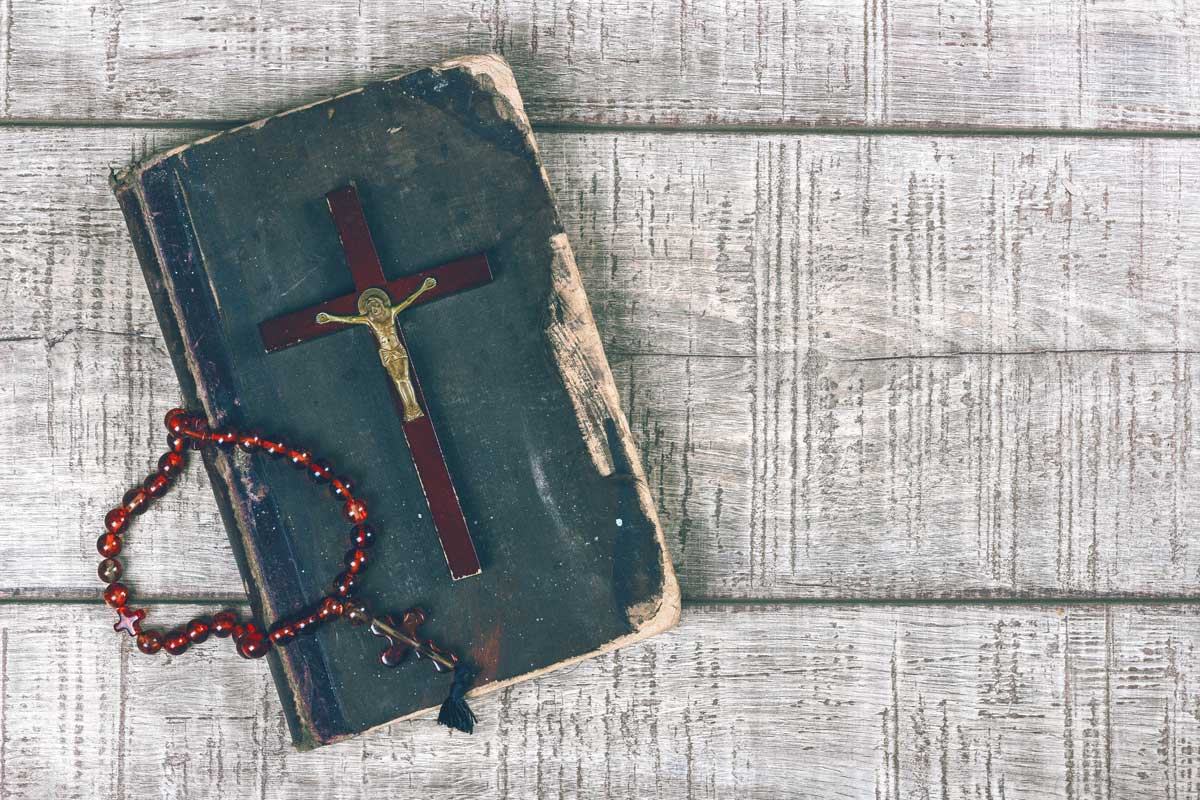
24.6—Nov/Dec 2011
Liberty, Conscience & Autonomy
How the Culture War of the Roaring Twenties Set the Stage for Today’s Catholic & Evangelical Alliance by Barry Hankins
more from the online archives
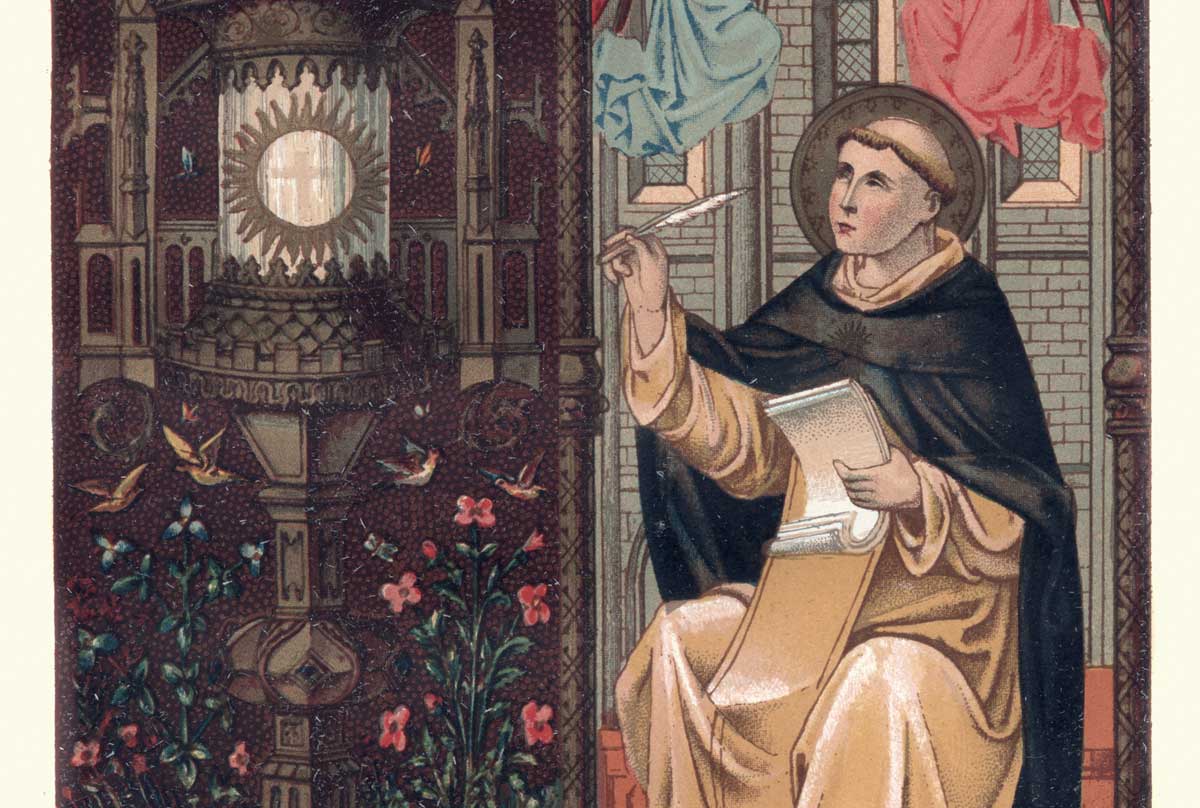
23.6—November/December 2010
Darwin, Design & Thomas Aquinas
The Mythical Conflict Between Thomism & Intelligent Design by Logan Paul Gage
calling all readers
Please Donate
"There are magazines worth reading but few worth saving . . . Touchstone is just such a magazine."
—Alice von Hildebrand
"Here we do not concede one square millimeter of territory to falsehood, folly, contemporary sentimentality, or fashion. We speak the truth, and let God be our judge. . . . Touchstone is the one committedly Christian conservative journal."
—Anthony Esolen, Touchstone senior editor






